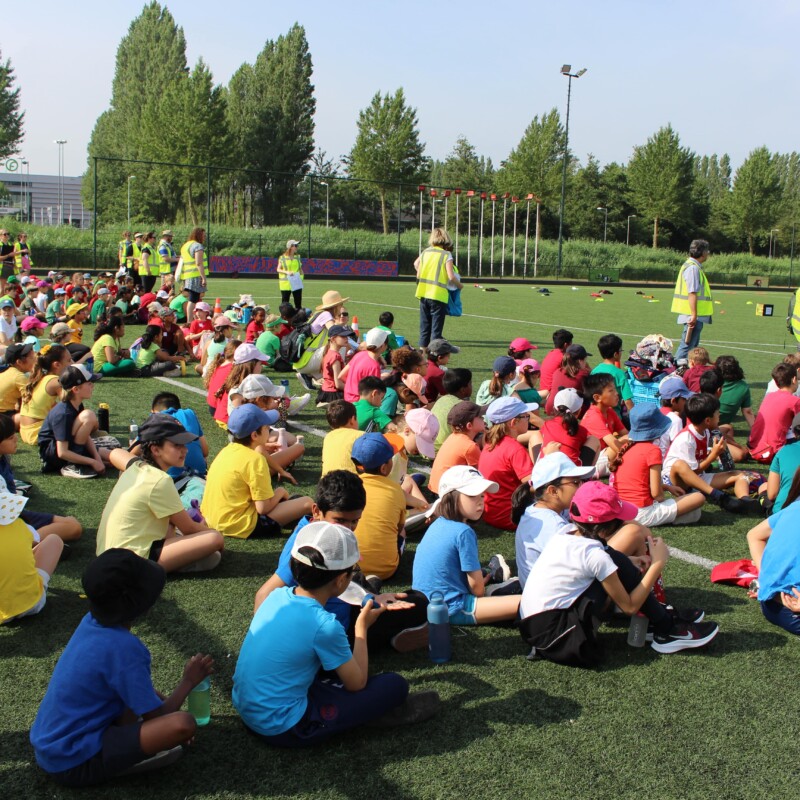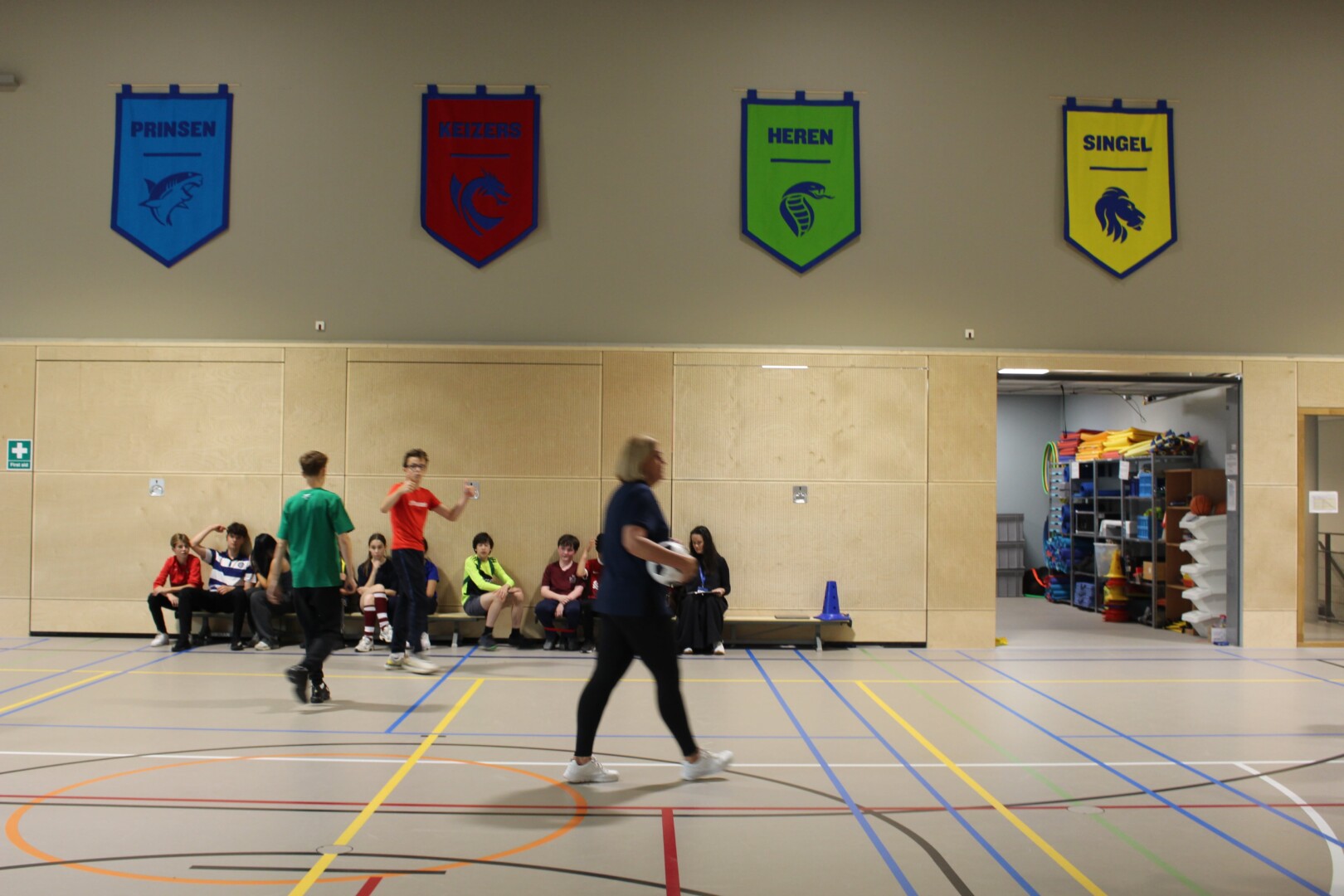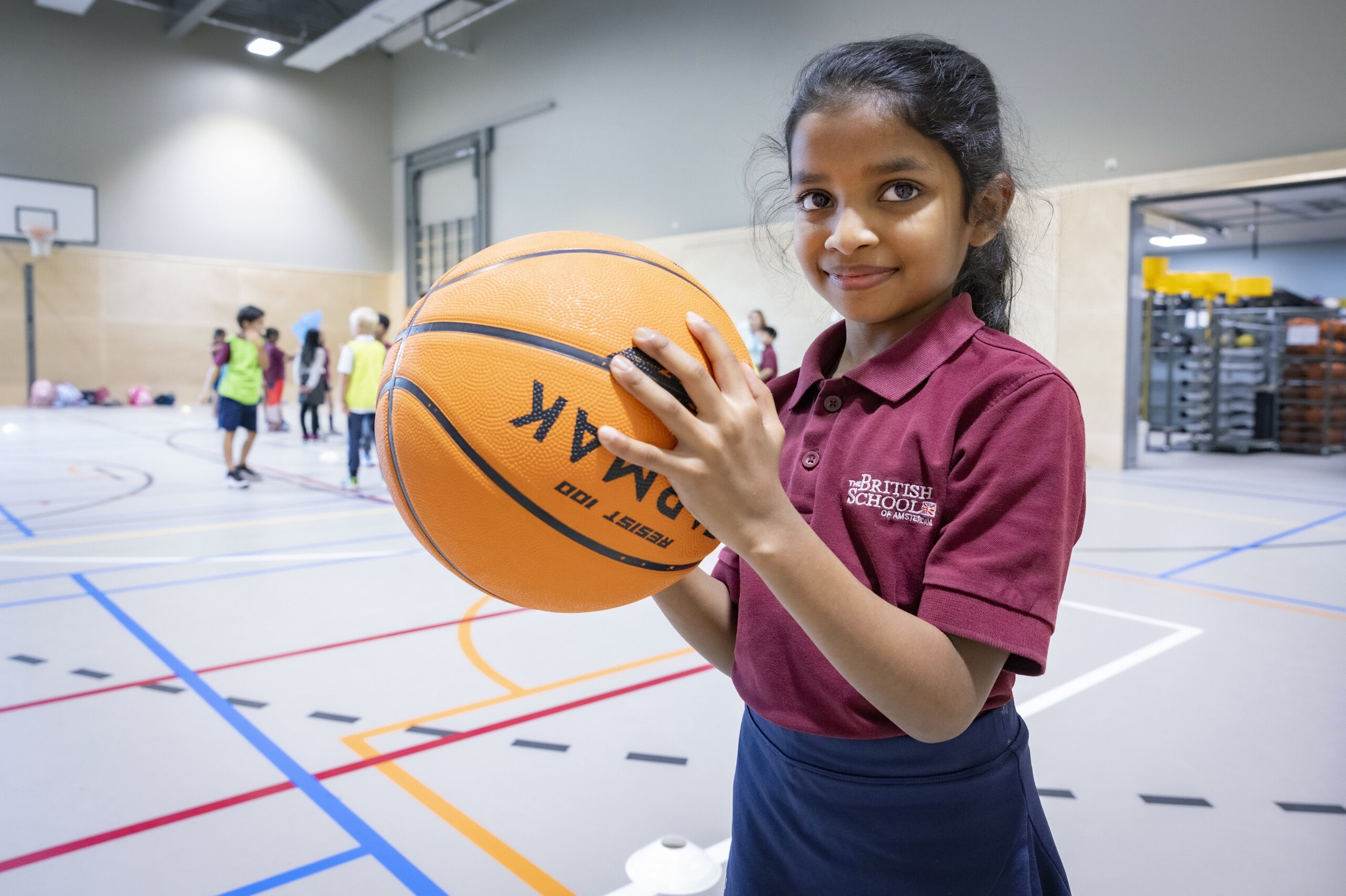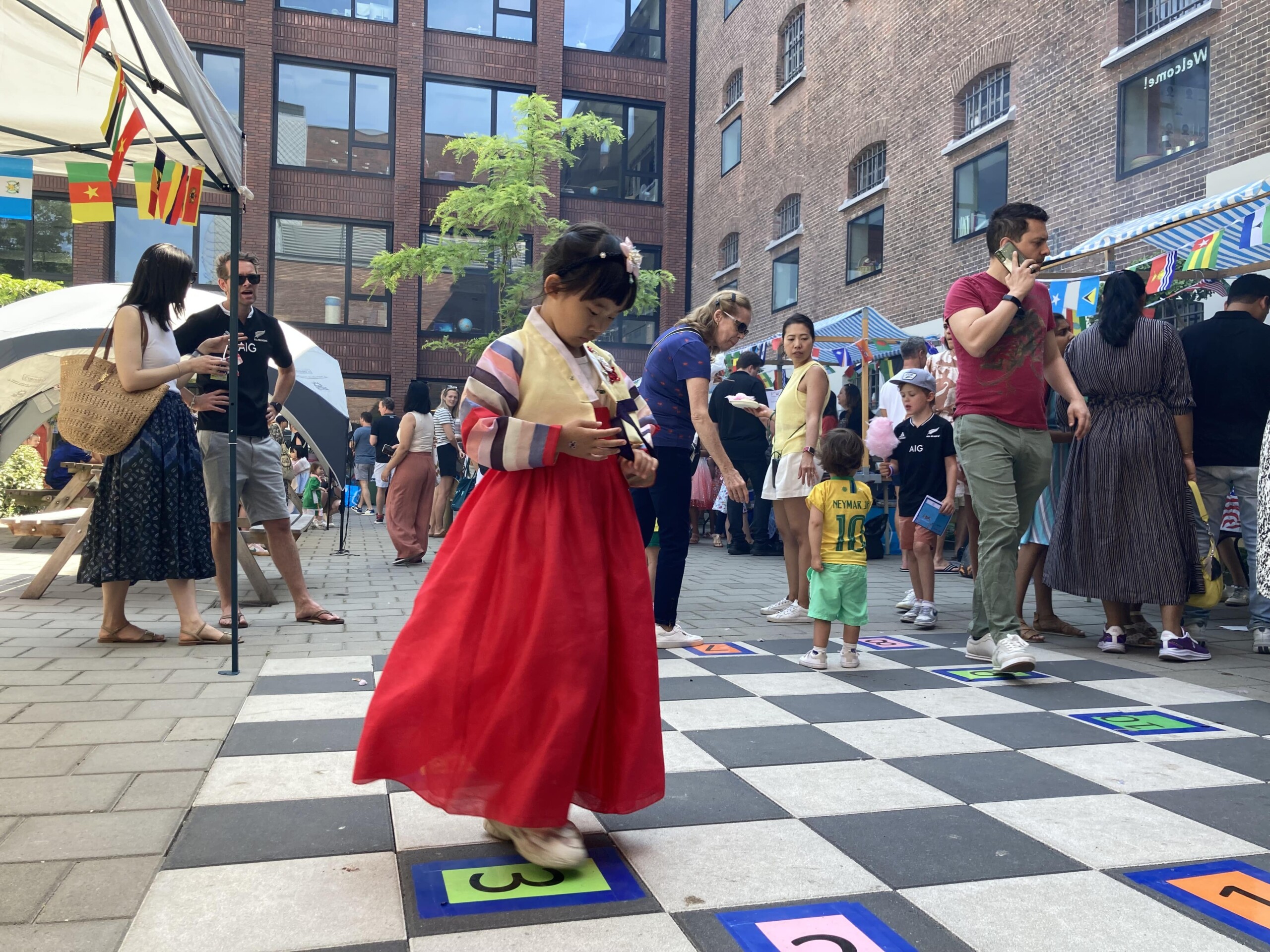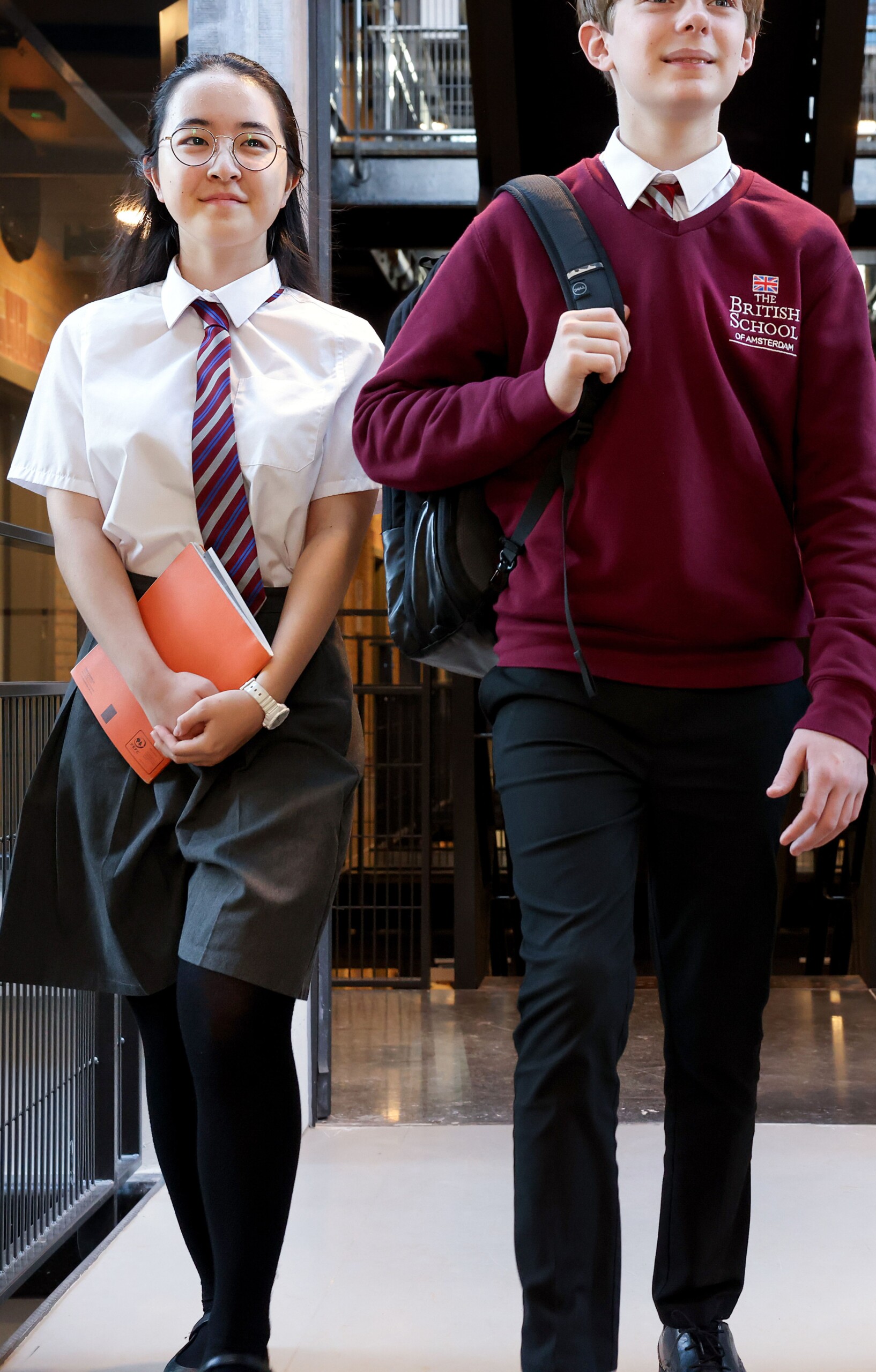In British education, it is typical to have a house system. A house system divides students, and in our school staff too, into groups, or “houses,” fostering a sense of belonging and community within the school.
This structure encourages participation in a variety of activities, promoting teamwork, school spirit, and a sense of achievement. It also provides leadership opportunities, allowing students to develop important skills such as responsibility and collaboration.
Healthy competition among houses motivates students to excel academically and in sports, while inclusivity ensures that all students, regardless of ability, can contribute and feel valued.
The Four Houses
All students from Year 1 onwards, belong to one of four houses. The houses are Singel, Herengracht, Keizersgracht and Prinsengracht, named after the most well known canals in Amsterdam.
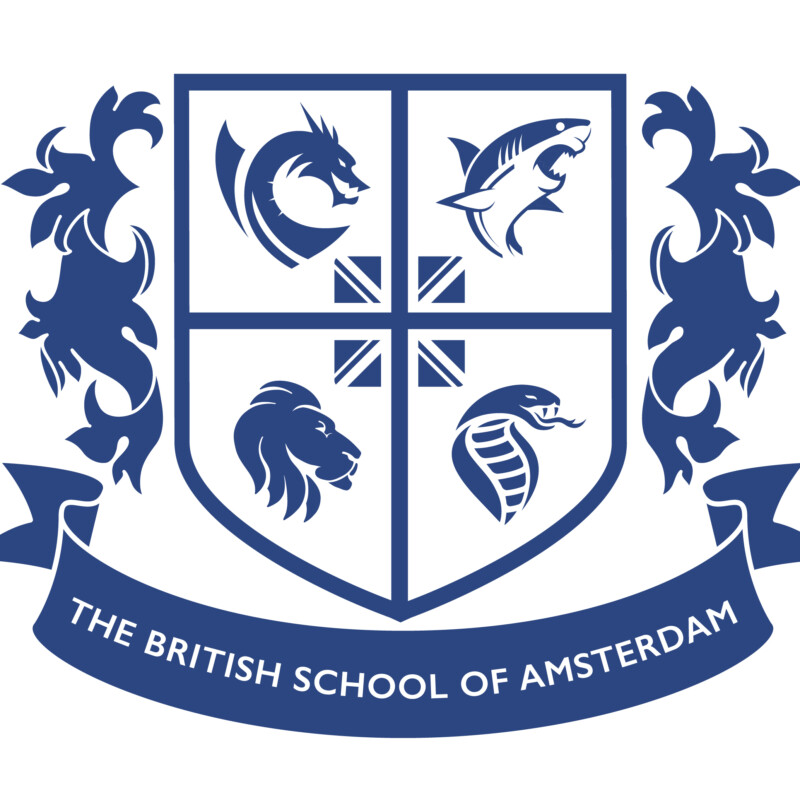
Year 1
We introduce the children to the house system in Year 1. This provides an opportunity for them to socialise with children in different classes and prepares them for more house activities when they enter the Junior School.
Junior School
Students earn house points for good behaviour, excellent work, friendships and consideration, receiving certificates for various point totals throughout the year. A weekly house points competition features Year 6 house captains contending for the cup. Houses are involved in team games, sports day, theme week competitions, and summer term activities.
Senior School
In the Senior School, students wear different coloured ties to denote their house. Inter-house competitions are held throughout the academic year, and builds towards the awarding of the House Cup each year after sports day. The winning house celebrates with a house away day.
